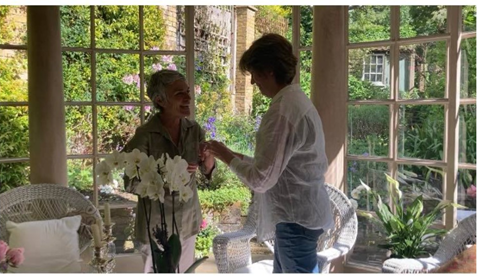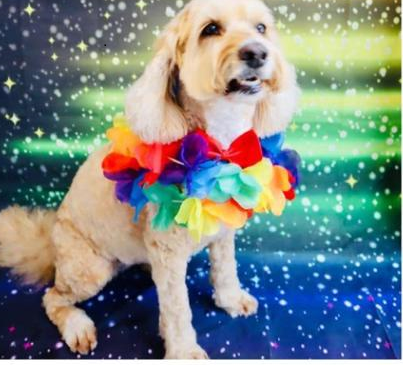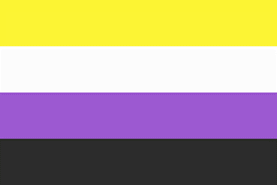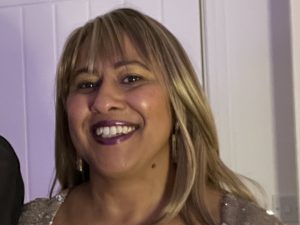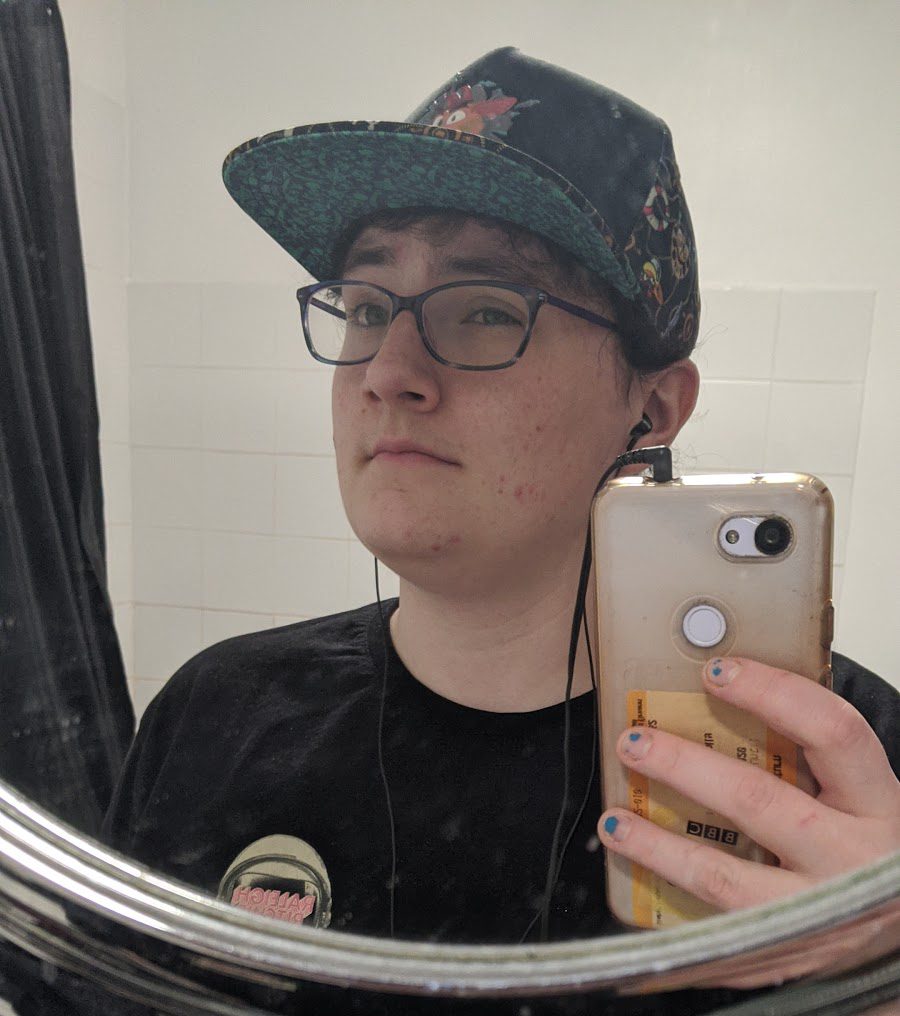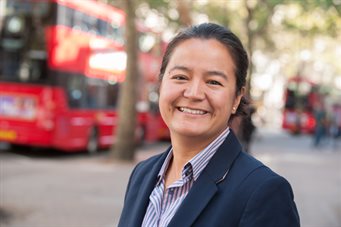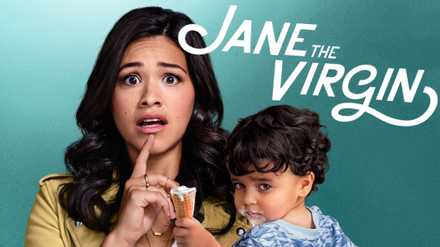This Pride Month, we are talking to LGBTQ+ members of the King’s College London community to find out what Pride means to them. If you would like to share what Pride means to you, please email the team at diversity@kcl.ac.uk.
Jo Levy is Head of Mental Health & Counselling Outreach & Training at King’s. Jo is genderqueer and uses they/them pronouns. They live in London with their partner, Bev, and are supported at Pride by Flossie, their sister’s Cockapoo.
A day of joy and safety
The significance of Pride has shifted over time. I’m showing my age here, but 30 years ago we partied against a backdrop of overt homophobia. I lost friends to HIV and hate crime was common. Section 28, the UK law which banned the ‘promotion of homosexuality’ in schools or in public institutions, was still in place. It was only revoked in 2003.
At Pride back then, my friends and I would get together and celebrate our independence and freedom. We were as present and exuberant as possible. It was our way of sharing that awareness with the world: it’s not a crime to be yourself.
Holding others’ rights in mind
Pride in 2023 is partly about celebrating the freedoms we’ve won. Compared with 30 years ago, it’s easier to be out and open at work, with your family and in the wider community.
But we’re also fighting a backlash. Globally, there are many countries where LGBTQ+ people are imprisoned or killed simply for being themselves. There is also a lot of dangerous rhetoric closer to home, perhaps particularly around trans rights.
Pride is a great opportunity to look beyond our own small group. LGBTQ+ people shouldn’t hide in silos. We should be caring about one another and fighting for our rights as a collective.
Improving accessibility for LGBTQ+ students
I’ve worked for King’s Counselling & Mental Health Service for nine years. We’ve always offered support to any student who’s struggling, but I think we’ve improved the way we promote our services to LGBTQ+ students in recent times.
KCLSU has led the way in promoting inclusivity. Simple measures such as sharing pronouns on e-signatures and at the start of meetings help create a culture of allyship.
Statistically, LGBTQ+ young people experience worse mental health than their peers, so we’re taking steps to cater for their needs. We partnered with Togetherall, the online counselling provider, to help support those who aren’t comfortable meeting face-to-face. We’ve also just launched Queer Identities, a therapeutic group for queer and questioning students.
There’s always more that can be done. My hope is that by being out and open within the counselling service, I can help make it a more inclusive space for others.
Get involved & make a difference this Pride Month
- Join our LGBTQ+ staff network Proudly King’s or attend one of their events here.
- Check out our Pride student news article which is full of useful links here.
- Pride Month Step-Out challenge! Join Proudly King’s & King’s Sport in a 28, 06,69 step challenge in June and July to commemorate LGBTQ+ Pride Month and summer activities whilst keeping active. Sign up on the King’s Move app from 12th June here!
Want to Learn more about Equality, Diversity & Inclusion at King’s College London?
- Found out more by visiting our Equality, Diversity & Inclusion at King’s pages.
- Follow us on Twitter.
- Email the team at diversity@kcl.ac.uk
